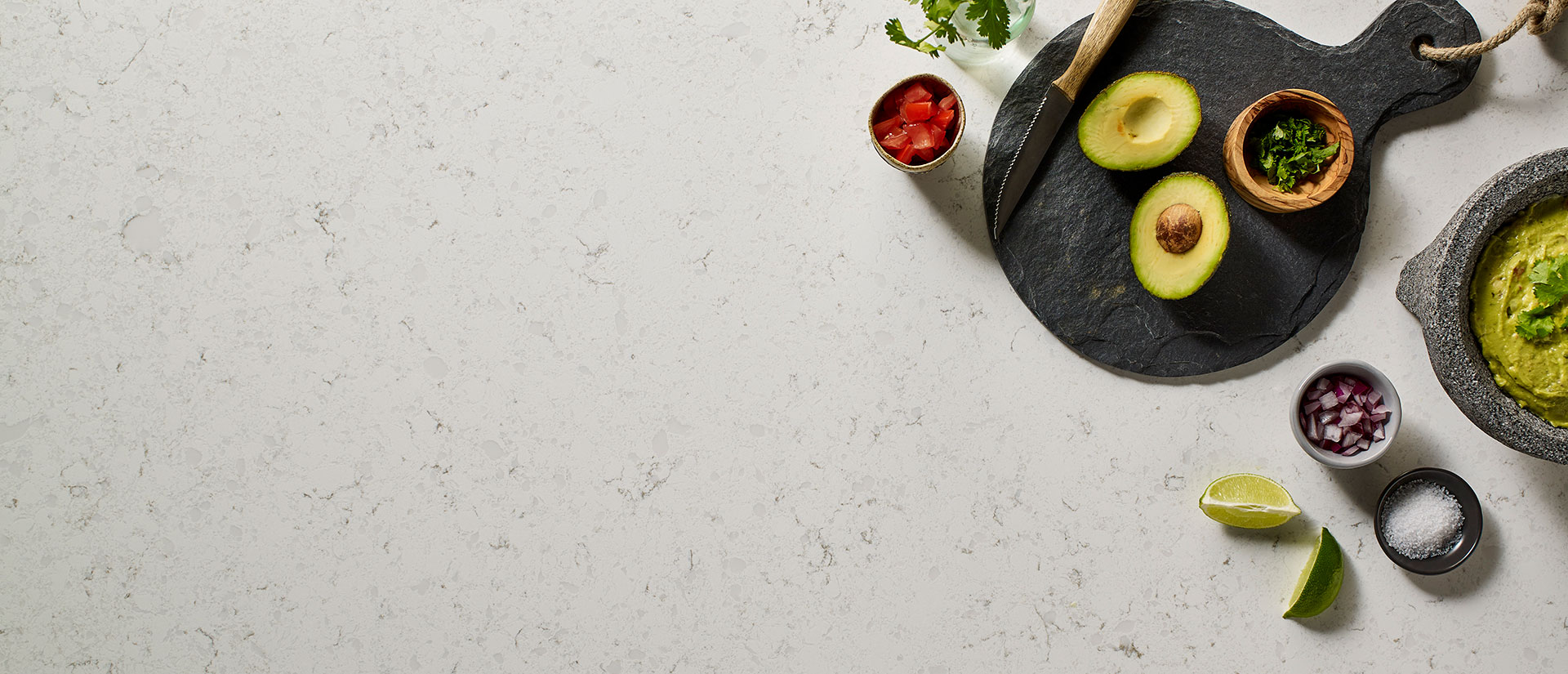Countertops: whether you’re trying to decide for your kitchen, mother-in-law suite bathroom, or the bar on the back patio, the decision can seem overwhelming between color and cost and everything in between. It’s important to consider the pros and cons of quartz countertops versus granite, but first let's cover the differences between the two.
What is granite?
Granite is a type of natural stone, or igneous rock that is composed mainly of quartz (coincidence?) and feldspar, along with trace amounts of other minerals like mica. Granite is popular because of its unique texture, color patterns and its ability to be used diversely; floor tiles, paving stones, and of course, countertops.
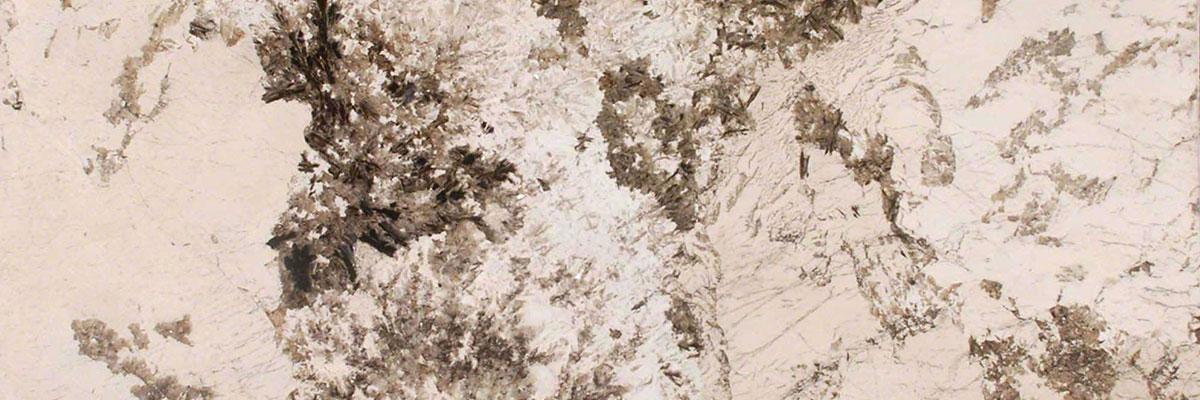
What is quartz?
Quartz is the most abundant and widely distributed mineral found at Earth's surface. It’s abundant in igneous, metamorphic and sedimentary rocks and highly resistant to weathering. This durability makes it extremely useful in a wide range of ways like in glass making, chemical properties, and in building materials.
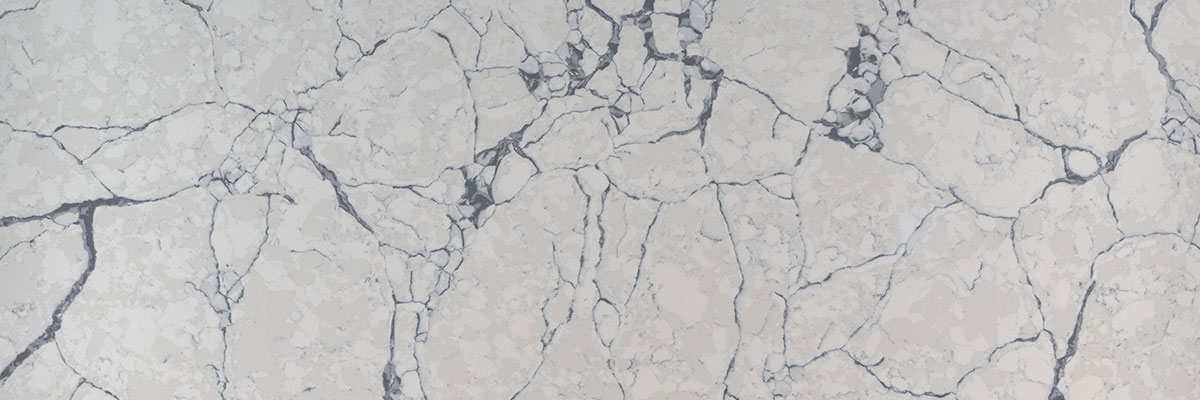
Pros of Granite Countertops
It’s Unique. Because it's a natural stone, every granite slab features its own individual lines, colors and patterns. The exclusiveness of each design enables you to create a design around countertops that won’t be repeated anywhere else. The shade you decide on will blend perfectly with cabinets, tiles, and walls that are unique to your home.
Added Value on a Budget. Granite countertops not only add the perfect upscale appeal to your bathroom or kitchen, they are less expensive than quartz countertops while still adding value to the home. On average, you can expect the cost per square foot to start at $45 and range up to $85.
Durability. While granite is not unbreakable, it's extremely resistant to scratches and damage like extreme heat or stains. No need to worry about placing a hot pan on the counter or messy spills. If the surface is sealed correctly (make sure you’re working with professionals to ensure it's properly sealed) granite countertops won’t absorb any unwanted elements. Perfect for a home with rambunctious kiddos, or an excellent addition to the back patio bar.
Cons of Granite Countertops
Environmental Impact. Mining granite is resource intensive and requires a large amount of energy to transport. When using any natural resources, it's not uncommon for the environmental impact to be significant.
Minimalists, not for you. If you’re looking for a clean, more modern feel, granite countertops won’t fit the bill. Because of the uniqueness of each slab, they have a lot of variation and movement. Quartz countertops offer more solid colors and clean patterns.
Requires upkeep.Granite countertops often require resealing throughout its lifetime. Granite is porous so if it's not properly sealed and resealed regularly (reminder - talk to the professionals) moisture can seep in and cause unwanted damage.
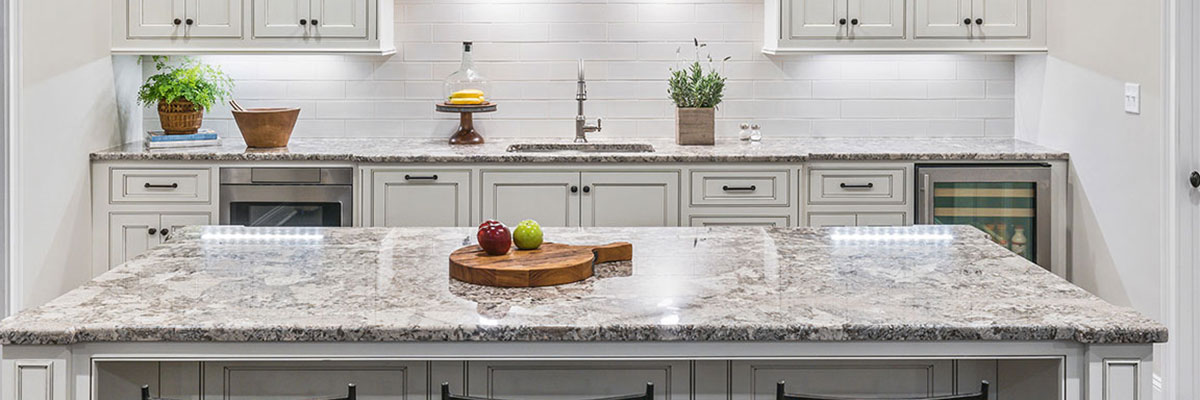
Pros of Quartz Countertops
Longer Lifespan. Quartz countertops can last twice as long as granite because of its extreme durability. This also means you have the ability to customize the edges of each countertop without worrying about chipping.
Low Maintenance. Quartz isn’t porous like granite. While granite countertops will require resealing throughout its lifespan, quartz countertops won’t require regular maintenance. One more item you can knock off your honey-do lists.
More Style Options.While granite is naturally unique, their variations are unpredictable. Quartz has the feature to mimic natural stone while also having the option of clean patterns or sleek, singular shades.
Cons of Quartz Countertops
More expensive.In many cases, you’ll often be spending $75 to $120 per square foot depending on on the size of the countertop space, the style and the brand you choose. If you’re working on a smaller budget while also looking for similar appeal, consider granite instead.
It’s not very heat resistant.The surface color can become faded or damaged when exposed to rapid temperature changes or long-term sun exposure. Quartz countertops cannot be exposed to sun for long periods of time so it shouldn’t be used outdoors. You’ll need to be cautious when placing hot cooking utensils or heated tools on quartz countertops, as well.
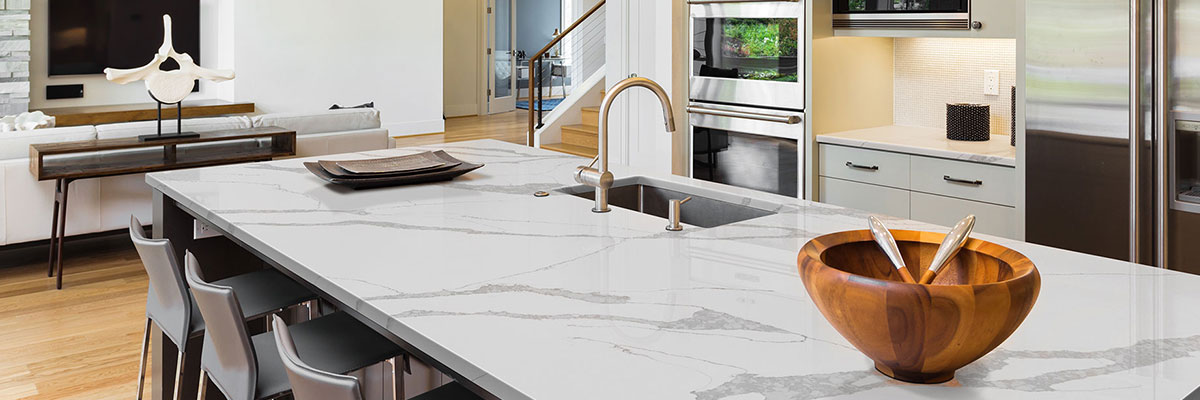
Need help deciding on the best countertops for your home? Call us today at (850) 249-4557 or visit http://surfacespcb.com to schedule a consultation with our design team, or make an appointment to stop by our 12,000 square foot Panama City Beach showroom.
